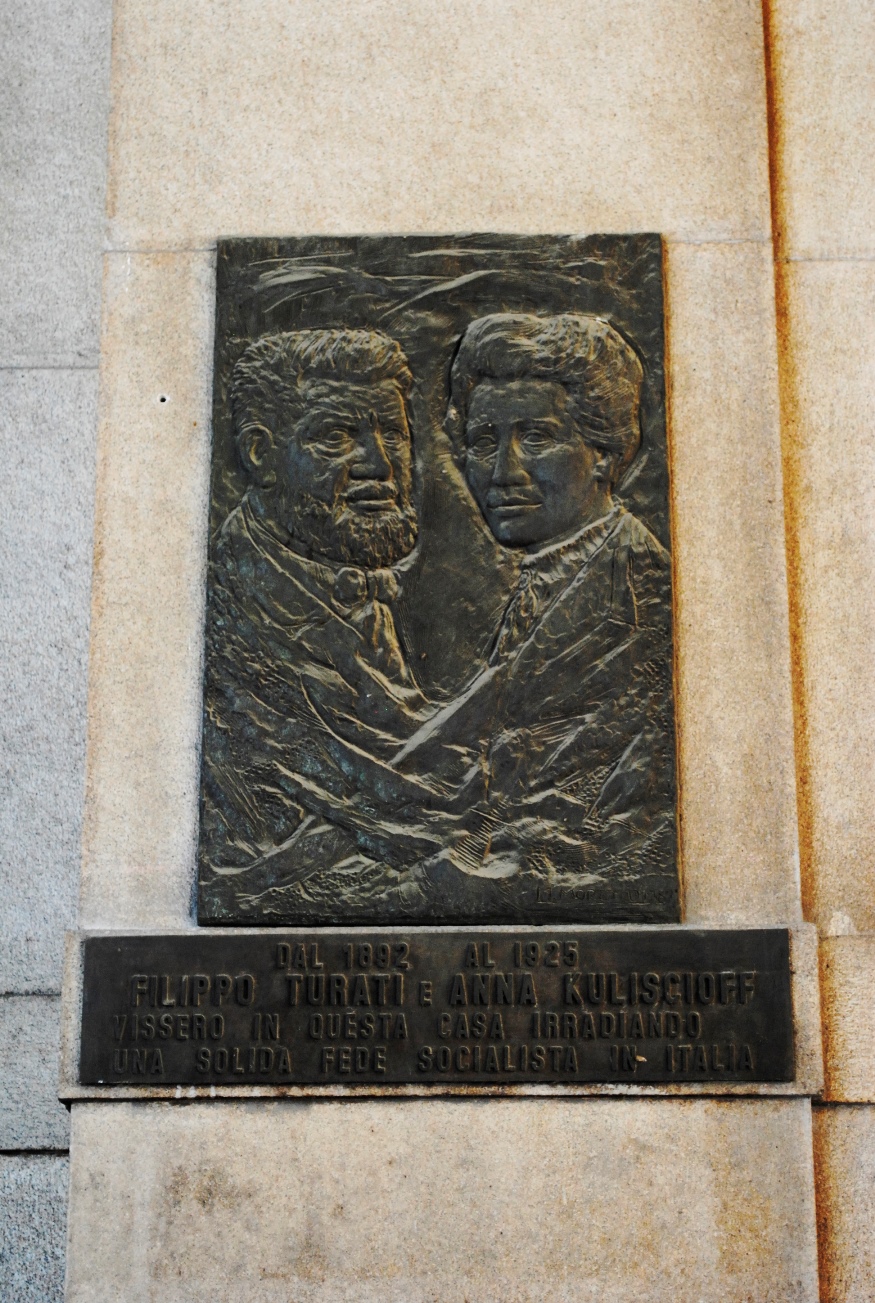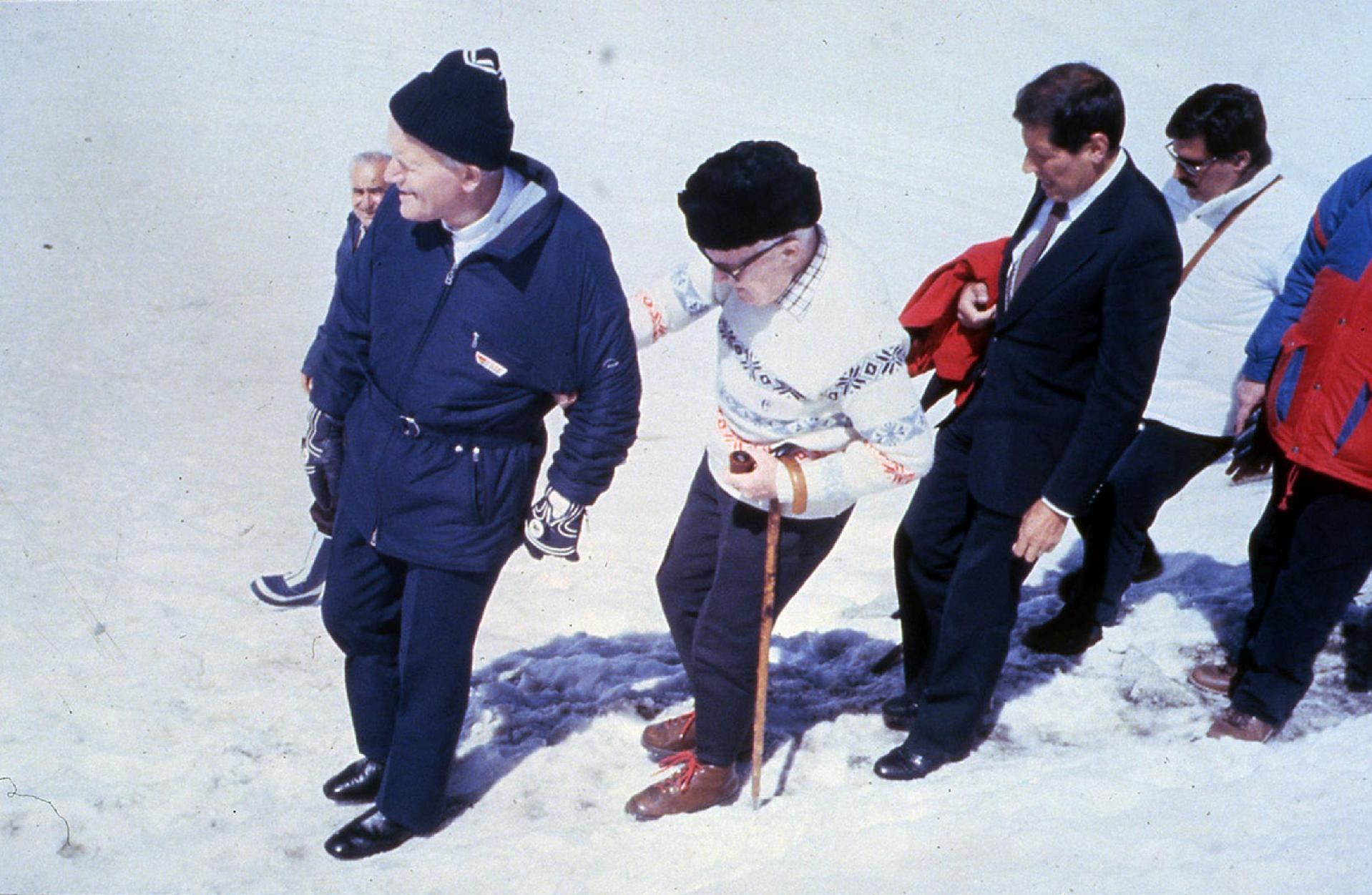|
United Socialist Party (Italy, 1922–30)
The Unitary Socialist Party (''Partito Socialista Unitario'', PSU) was a democratic socialist political party in Italy, active from 1922 to 1930. History The party was founded in November 1922 by the reformist wing of the Italian Socialist Party (PSI) led by Rinaldo Rigola, Filippo Turati and Giacomo Matteotti, after they had been expelled in October. A staunch opponent of Benito Mussolini and Fascism, Matteotti was assassinated by Fascists, affiliated to '' OVRA'', in June 1924. The event provoked the Aventine Secession. Outlawed in November 1925, the PSU became active in clandestinity, as the Italian Workers' Socialist Party (''Partito Socialista dei Lavoratori Italiani'', PSLI). In June 1930 the PSLI re-joined the PSI. Leading members and activists of the party included Oddino Morgari, Sandro Pertini, Camillo Prampolini, Claudio Treves and Anna Kulischov. The party was a member of the Labour and Socialist International The Labour and Socialist International (LSI ... [...More Info...] [...Related Items...] OR: [Wikipedia] [Google] [Baidu] |
Giacomo Matteotti
Giacomo Matteotti (; 22 May 1885 – 10 June 1924) was an Italian socialist politician. On 30 May 1924, he openly spoke in the Italian Parliament alleging the Fascists committed fraud in the recently held elections, and denounced the violence they used to gain votes. Eleven days later he was kidnapped and killed by Fascists. Political career Matteotti was born into a wealthy family, in Fratta Polesine, Province of Rovigo in Veneto. He graduated in law at the University of Bologna. An atheist and from early on an activist in the socialist movement and the Italian Socialist Party, he opposed Italy's entry into World War I (and was interned in Sicily during the conflict for this reason). He was elected deputy three times: in 1919, 1921 and 1924. As a follower of Filippo Turati, Matteotti became the leader of the reformist Unitary Socialist Party in the Italian Chamber of Deputies after a split from the more radical Italian Socialist Party. Opposition to Fascism Matteotti o ... [...More Info...] [...Related Items...] OR: [Wikipedia] [Google] [Baidu] |
Members Of The Labour And Socialist International
Member may refer to: * Military jury, referred to as "Members" in military jargon * Element (mathematics), an object that belongs to a mathematical set * In object-oriented programming, a member of a class ** Field (computer science), entries in a database ** Member variable, a variable that is associated with a specific object * Limb (anatomy), an appendage of the human or animal body ** Euphemism for penis * Structural component of a truss, connected by nodes * User (computing), a person making use of a computing service, especially on the Internet * Member (geology), a component of a geological formation * Member of parliament * The Members, a British punk rock band * Meronymy, a semantic relationship in linguistics * Church membership, belonging to a local Christian congregation, a Christian denomination and the universal Church * Member, a participant in a club or learned society A learned society (; also learned academy, scholarly society, or academic association) is an ... [...More Info...] [...Related Items...] OR: [Wikipedia] [Google] [Baidu] |
Political Parties Disestablished In 1930
Politics (from , ) is the set of activities that are associated with making decisions in groups, or other forms of power relations among individuals, such as the distribution of resources or status. The branch of social science that studies politics and government is referred to as political science. It may be used positively in the context of a "political solution" which is compromising and nonviolent, or descriptively as "the art or science of government", but also often carries a negative connotation.. The concept has been defined in various ways, and different approaches have fundamentally differing views on whether it should be used extensively or limitedly, empirically or normatively, and on whether conflict or co-operation is more essential to it. A variety of methods are deployed in politics, which include promoting one's own political views among people, negotiation with other political subjects, making laws, and exercising internal and external force, including wa ... [...More Info...] [...Related Items...] OR: [Wikipedia] [Google] [Baidu] |
Defunct Social Democratic Parties In Italy
{{Disambiguation ...
Defunct (no longer in use or active) may refer to: * ''Defunct'' (video game), 2014 * Zombie process or defunct process, in Unix-like operating systems See also * * :Former entities * End-of-life product * Obsolescence Obsolescence is the state of being which occurs when an object, service, or practice is no longer maintained or required even though it may still be in good working order. It usually happens when something that is more efficient or less risky r ... [...More Info...] [...Related Items...] OR: [Wikipedia] [Google] [Baidu] |
Defunct Political Parties In Italy
{{Disambiguation ...
Defunct (no longer in use or active) may refer to: * ''Defunct'' (video game), 2014 * Zombie process or defunct process, in Unix-like operating systems See also * * :Former entities * End-of-life product * Obsolescence Obsolescence is the state of being which occurs when an object, service, or practice is no longer maintained or required even though it may still be in good working order. It usually happens when something that is more efficient or less risky r ... [...More Info...] [...Related Items...] OR: [Wikipedia] [Google] [Baidu] |
Political Parties Established In 1922
Politics (from , ) is the set of activities that are associated with making decisions in groups, or other forms of power relations among individuals, such as the distribution of resources or status. The branch of social science that studies politics and government is referred to as political science. It may be used positively in the context of a "political solution" which is compromising and nonviolent, or descriptively as "the art or science of government", but also often carries a negative connotation.. The concept has been defined in various ways, and different approaches have fundamentally differing views on whether it should be used extensively or limitedly, empirically or normatively, and on whether conflict or co-operation is more essential to it. A variety of methods are deployed in politics, which include promoting one's own political views among people, negotiation with other political subjects, making laws, and exercising internal and external force, including w ... [...More Info...] [...Related Items...] OR: [Wikipedia] [Google] [Baidu] |
1924 Italian General Election
General elections were held in Italy on 6 April 1924 to elect the members of the Chamber of Deputies.Dieter Nohlen & Philip Stöver (2010) ''Elections in Europe: A data handbook'', p1047 They were held under the Acerbo Law, which stated that the party with the largest share of the votes would automatically receive two-thirds of the seats in Parliament as long as they received over 25% of the vote.Nohlen & Stöver, p1033 The National List of Benito Mussolini (an alliance of Catholic, liberal and conservative political parties) used intimidation tactics against voters, resulting in a landslide victory and a subsequent two-thirds majority. This was the last multi-party election in Italy until 1946. Background On 22 October 1922, the leader of the National Fascist Party Benito Mussolini attempted a ''coup d'état'' which was titled by the Fascist propaganda the March on Rome in which took part almost 30,000 Fascists. The ''quadrumvirs'' leading the Fascist Party, General Emilio De ... [...More Info...] [...Related Items...] OR: [Wikipedia] [Google] [Baidu] |
Chamber Of Deputies (Italy)
The Chamber of Deputies ( it, Camera dei deputati) is the lower house of the bicameral Italian Parliament (the other being the Senate of the Republic). The two houses together form a perfect bicameral system, meaning they perform identical functions, but do so separately. The Chamber of Deputies has 400 seats, of which 392 will be elected from Italian constituencies, and 8 from Italian citizens living abroad. Deputies are styled ''The Honourable'' (Italian: ''Onorevole'') and meet at Palazzo Montecitorio. Location The seat of the Chamber of Deputies is the ''Palazzo Montecitorio'', where it has met since 1871, shortly after the capital of the Kingdom of Italy was moved to Rome at the successful conclusion of the Italian unification ''Risorgimento'' movement. Previously, the seat of the Chamber of Deputies of the Kingdom of Italy had been briefly at the ''Palazzo Carignano'' in Turin (1861–1865) and the ''Palazzo Vecchio'' in Florence (1865–1871). Under the Fascist regime o ... [...More Info...] [...Related Items...] OR: [Wikipedia] [Google] [Baidu] |
Anna Kulischov
Anna Kuliscioff (; rus, Анна Кулишёва, , ˈanːə kʊlʲɪˈʂovə; born Anna Moiseyevna Rozenshtein, ; 9 January 1857 – 27 December 1925) was a Russian-Italian revolutionary of Jewish origin, a prominent feminist, an anarchist influenced by Mikhail Bakunin, and eventually a Marxist socialist militant. She was mainly active in Italy, where she was one of the first women to graduate in medicine. Biography Anna Kuliscioff was born in 1857 near Simferopol, in Crimea. Her father, Moisei, was one of the five hundred privileged Jewish "merchants of the first guild" who were permitted to reside anywhere in the Russian Empire. Persecuted by the Imperial Russian authorities, Kuliscioff took refuge in Paris, where she met the Italian anarchist Andrea Costa, her future partner. After being expelled from France in 1878, she settled in Italy and became the editor of ''Critica Sociale'', a major socialist paper, in 1891. An activist for causes such as women's suffrage, Anna Kul ... [...More Info...] [...Related Items...] OR: [Wikipedia] [Google] [Baidu] |
Claudio Treves
Claudio Treves (24 March 1869 – 11 June 1933) was an Italian politician and journalist. Life Youth Claudio Treves was born in Turin into a well off assimilated Jewish family. As a student he participated in the Radical milieu of Turin and, in 1888, he joined first his university's student radical circle, then the local independent labor union, influenced by the Milanese socialist Filippo Turati. In 1892 he graduated in law and made his way into the militant socialist community. PSI Treves became a member of the managing committee of the Piedmontese regional federation of the Partito Socialista Italiano (PSI), and in 1894, prosecuted under the 'exceptional laws' on sedition, he spent two months in prison. For some years after he travelled abroad, spending two years to Berlin, then on to Paris, Switzerland, Netherlands, Belgium and Scandinavia. All the while Treves was sending reports from these countries to ''Avanti!'', the Italian socialist paper. He contributed to sever ... [...More Info...] [...Related Items...] OR: [Wikipedia] [Google] [Baidu] |
Sandro Pertini
Alessandro "Sandro" Pertini (; 25 September 1896 – 24 February 1990) was an Italian socialist politician who served as the president of Italy from 1978 to 1985. Early life Born in Stella (Province of Savona) as the son of a wealthy landowner, Alberto, he studied at a Salesian college in Varazze, and completed his schooling at the "''Chiabrera''" lyceum (high school) in Savona. His philosophy teacher was Adelchi Baratono, a reformist socialist who contributed to his approach to socialism and probably introduced him to the inner circles of the Ligurian labour movements. Pertini obtained a law degree from the University of Genoa. Aged 19 when Italy entered World War I on the side of the Triple Entente, Pertini opposed the war, but nonetheless enlisted in the army where he served as a lieutenant and was decorated for bravery. After the armistice in 1918, he joined the Unitary Socialist Party, PSU, then he settled in Florence where he also graduated in political science with a ... [...More Info...] [...Related Items...] OR: [Wikipedia] [Google] [Baidu] |







